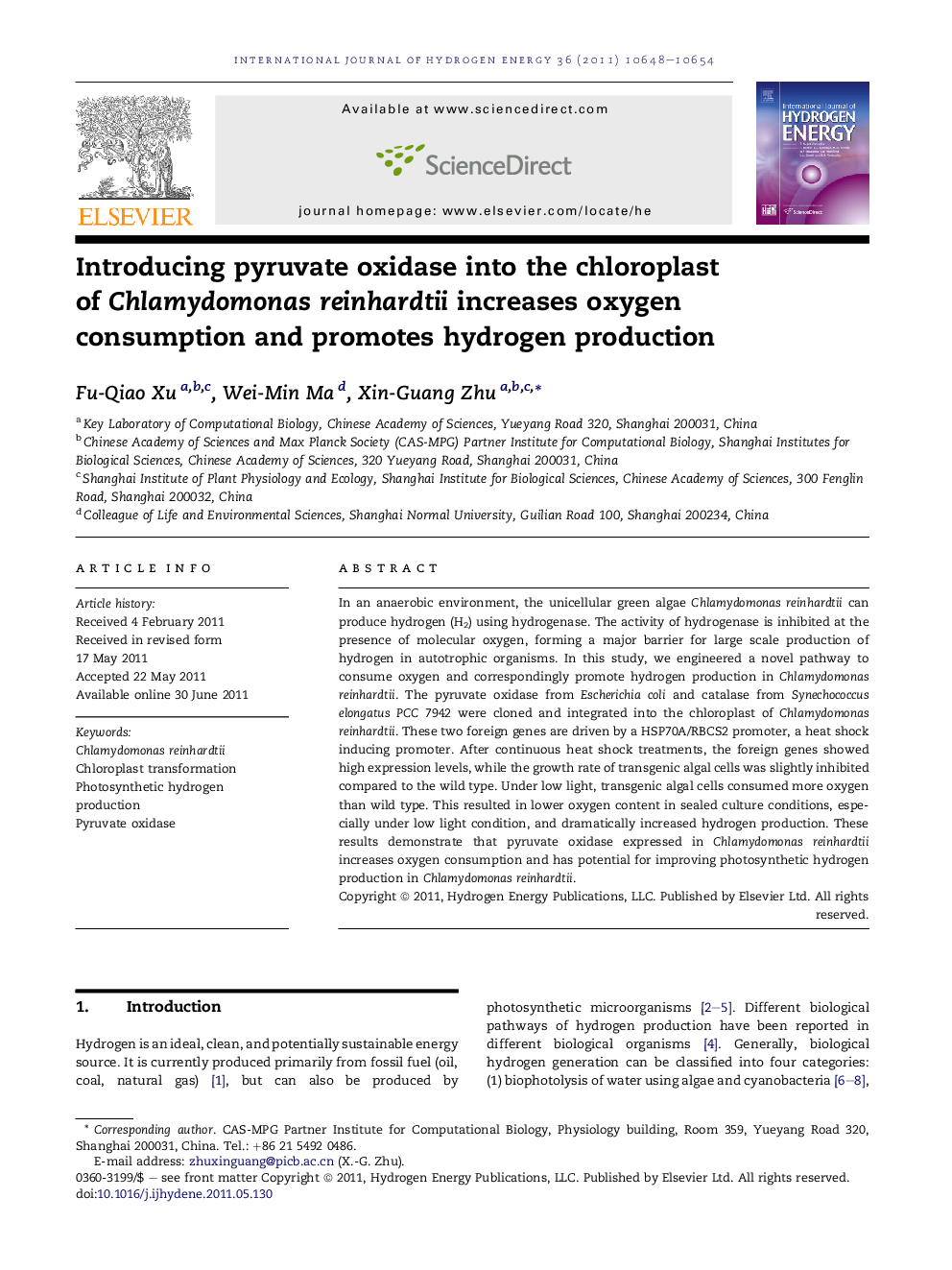| Article ID | Journal | Published Year | Pages | File Type |
|---|---|---|---|---|
| 1277532 | International Journal of Hydrogen Energy | 2011 | 7 Pages |
In an anaerobic environment, the unicellular green algae Chlamydomonas reinhardtii can produce hydrogen (H2) using hydrogenase. The activity of hydrogenase is inhibited at the presence of molecular oxygen, forming a major barrier for large scale production of hydrogen in autotrophic organisms. In this study, we engineered a novel pathway to consume oxygen and correspondingly promote hydrogen production in Chlamydomonas reinhardtii. The pyruvate oxidase from Escherichia coli and catalase from Synechococcus elongatus PCC 7942 were cloned and integrated into the chloroplast of Chlamydomonas reinhardtii. These two foreign genes are driven by a HSP70A/RBCS2 promoter, a heat shock inducing promoter. After continuous heat shock treatments, the foreign genes showed high expression levels, while the growth rate of transgenic algal cells was slightly inhibited compared to the wild type. Under low light, transgenic algal cells consumed more oxygen than wild type. This resulted in lower oxygen content in sealed culture conditions, especially under low light condition, and dramatically increased hydrogen production. These results demonstrate that pyruvate oxidase expressed in Chlamydomonas reinhardtii increases oxygen consumption and has potential for improving photosynthetic hydrogen production in Chlamydomonas reinhardtii.
► Introducing pyruvate oxidase and catalase into Chlamydomonas reinhardtii increased oxygen consumption. ► Enhancing oxygen consumption inside C. reinhardtii increased hydrogen production rate. ► C. reinhardtii with enhanced oxygen consumption did not show growth retardation.
